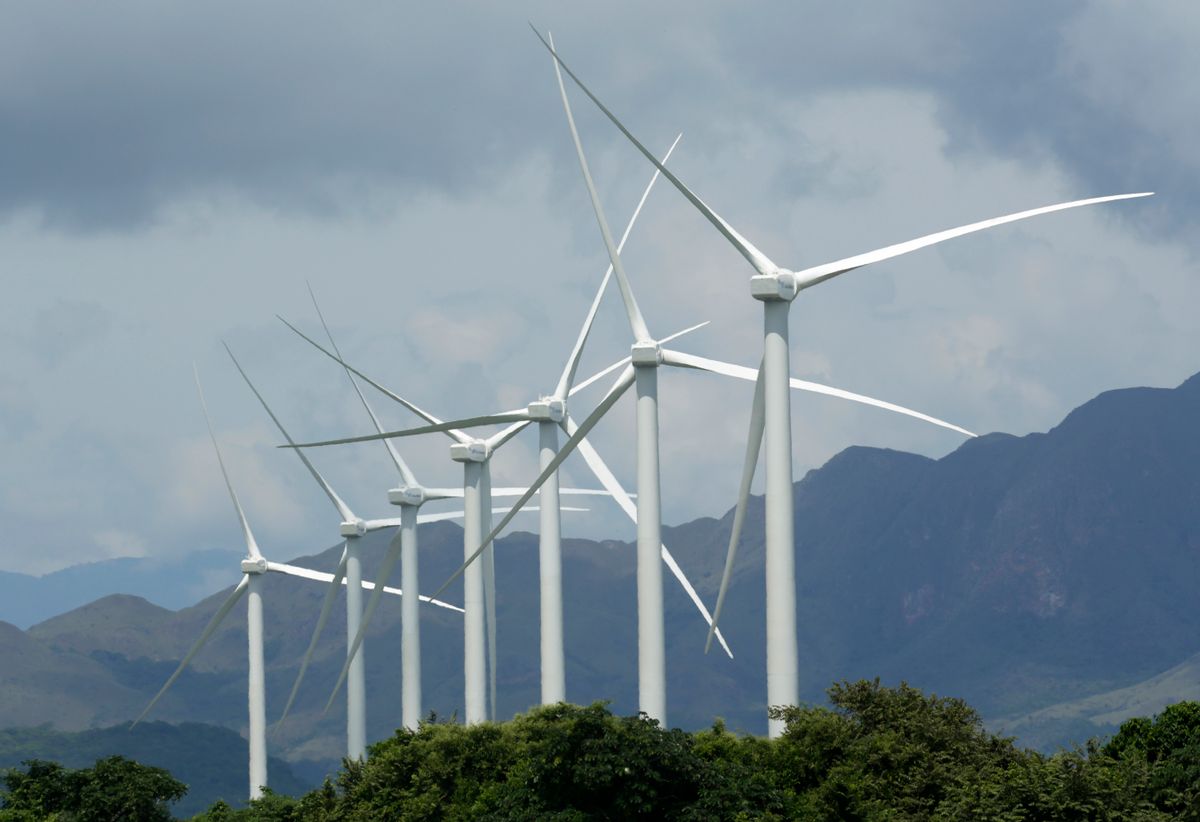A group of Wyoming lawmakers is bucking the U.S. trend of stricter renewable energy requirements with a plan to do the opposite: Fine utilities if they provide energy produced by wind or the sun.
Blustery Wyoming ranks among the top states for wind-energy potential, but the coal, oil and natural gas industries are the backbone of the state's economy.
With a $360 million budget shortfall in public education caused by downturns in those industries and corresponding state revenue declines, legislators are hard-pressed for solutions.
Renewable energy, some say, has been overly promoted and subsidized by government at the expense of the fossil fuel industry.
"I want the electricity at my house generated by coal, because that's the cheapest way to go," said Rep. David Miller, a Republican, of the fossil-fuel requirement he's co-sponsoring with eight others.
The measure makes for an increasingly complicated relationship between Wyoming and renewable energy, even as roads are built for the biggest land-based wind project in the U.S.
The Chokecherry and Sierra Madre project in south-central Wyoming will have 1,000 turbines and be able to generate electricity for close to 1 million homes in a state with just 584,000 people.
The project will sprawl across 340 square miles of barely inhabited sagebrush foothills where the wind speed averages more than 15 mph and frequently gusts above 50 mph.
Wyoming Senate President Eli Bebout said he does not like the idea of penalizing renewable energy producers.
But he argues that Wyoming's electricity customers pay more than they should for electricity because some of what they receive comes from other states that subsidize renewable energy production.
"I don't believe that we should subsidize their beliefs and their legislation and their direction on how to do renewables," Bebout said.
Wyoming is the nation's top coal-mining state, but some experts question whether favoring coal so much would be good policy and make energy cheaper for customers over the long term.
The trend of wind and solar energy production becoming less expensive will continue for years, said Rob Godby, an associate professor and director of the Center for Energy Economics and Public Policy at the University of Wyoming.
The legislators' push to punish renewable energy use "clearly picks a preferred energy source regardless of cost. This may not only cost ratepayers and consumers in Wyoming, but it could harm our potential to attract new industry," Godby said.
The bill would penalize utility-scale solar and wind because those producers are less able to respond quickly to fluctuating demand for power. Natural gas power plants can fire up quickly when millions of people turn on their air conditioners during a heat wave.
But the wind does not blow all the time and solar energy installations cannot produce electricity at night, making them less versatile than fossil fuels that can be burned whenever electricity is needed.
The bill would require all utilities serving Wyoming by 2019 to obtain their electricity from sources other than commercial-scale wind or solar operations.
Utilities would be fined $10 per renewable energy megawatt hour used in a year, the amount of energy it takes to power 82 Wyoming homes.
Utilities oppose the bill but "have been working with the bill sponsors to try to understand what their concerns are and come up with something that works," said Dave Eskelsen, spokesman for Rocky Mountain Power, a Utah-based utility serving Wyoming that gets about 11 percent of electricity from wind power and geothermal energy.
Wyoming doesn't have any significant commercial solar projects yet though an 80-megawatt solar plant is planned in the high desert of the western part of the state.
A spokeswoman for Power Company of Wyoming, which is building the Chokecherry and Sierra Madre wind farm, said the company has no position on the bill because the wind farm's electricity will go to southwestern U.S. states and help meet California's goal of using 50 percent renewable energy by 2030.
Power Company of Wyoming is a wholly owned subsidiary of Denver billionaire Phil Anschutz's The Anschutz Corp., which traces its roots to and remains in the oil business.
Thirty-seven states now have renewable energy utility portfolio standards or goals including Hawaii, which plans to get all of its electricity from renewable energy by 2045. Wyoming is among the 13 states without any upcoming requirement or goals.
Penalizing wind and solar would put Wyoming even more out of step with most of the country, said Shannon Anderson with the Powder River Basin Resource Council, which works with rural landowners to protect their interests on environmental issues that arise with fossil fuel producers.
"Wyoming either embraces the future or we're going to be stuck in the past," Anderson said.
___
Follow Mead Gruver at https://twitter.com/meadgruver



Shares